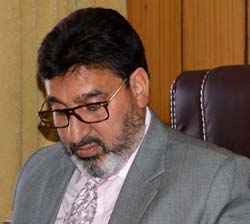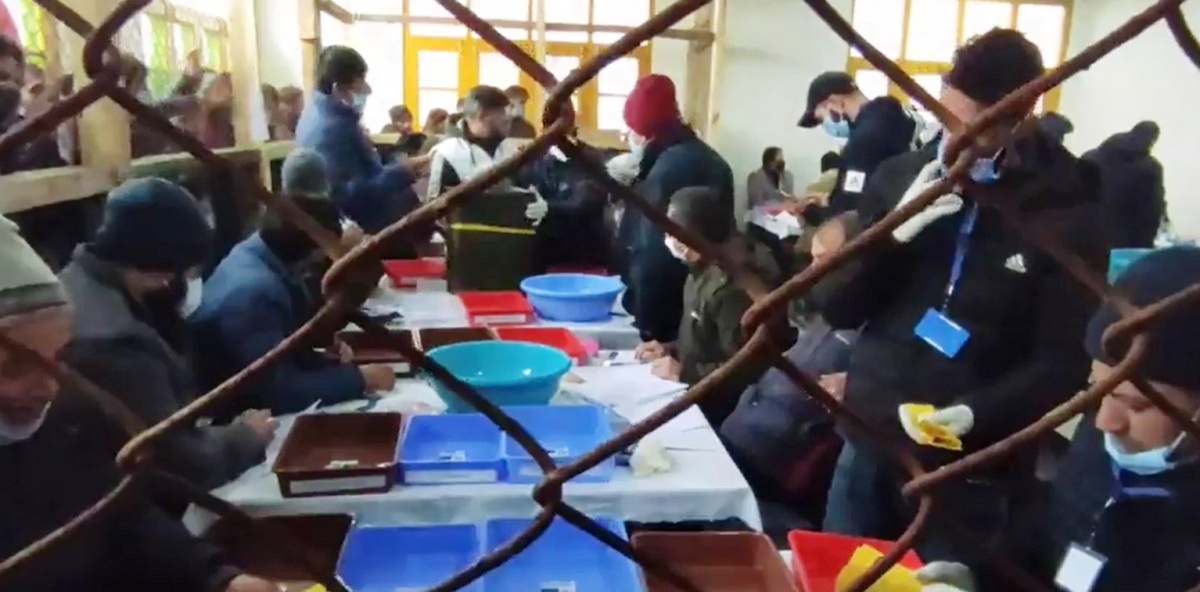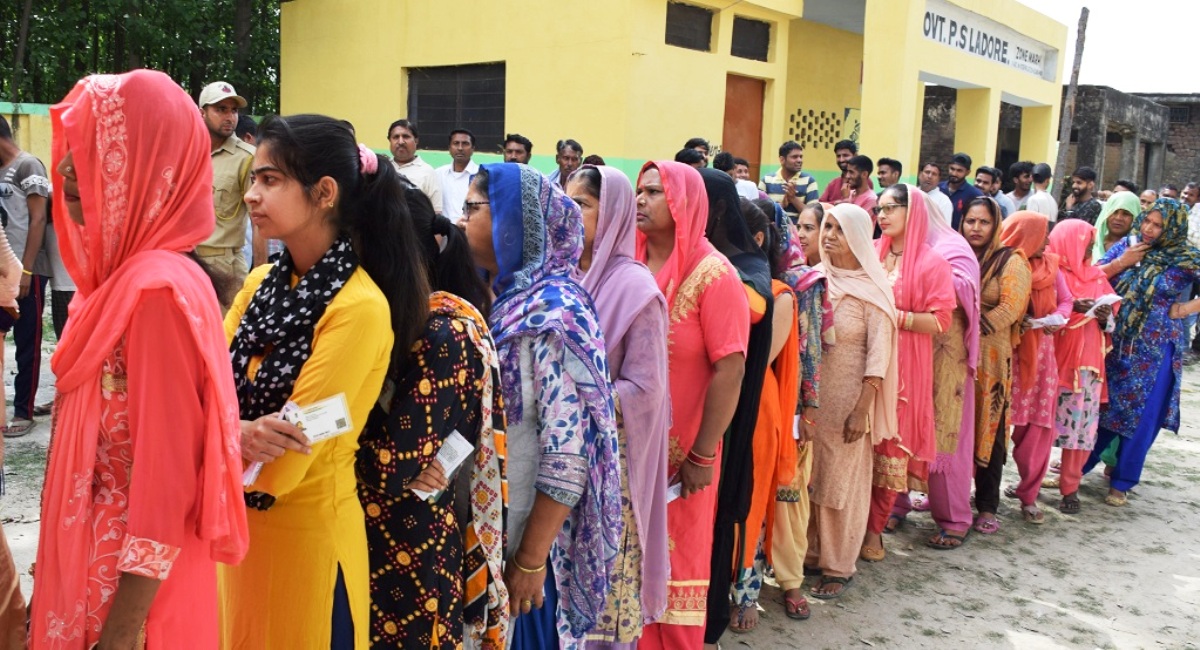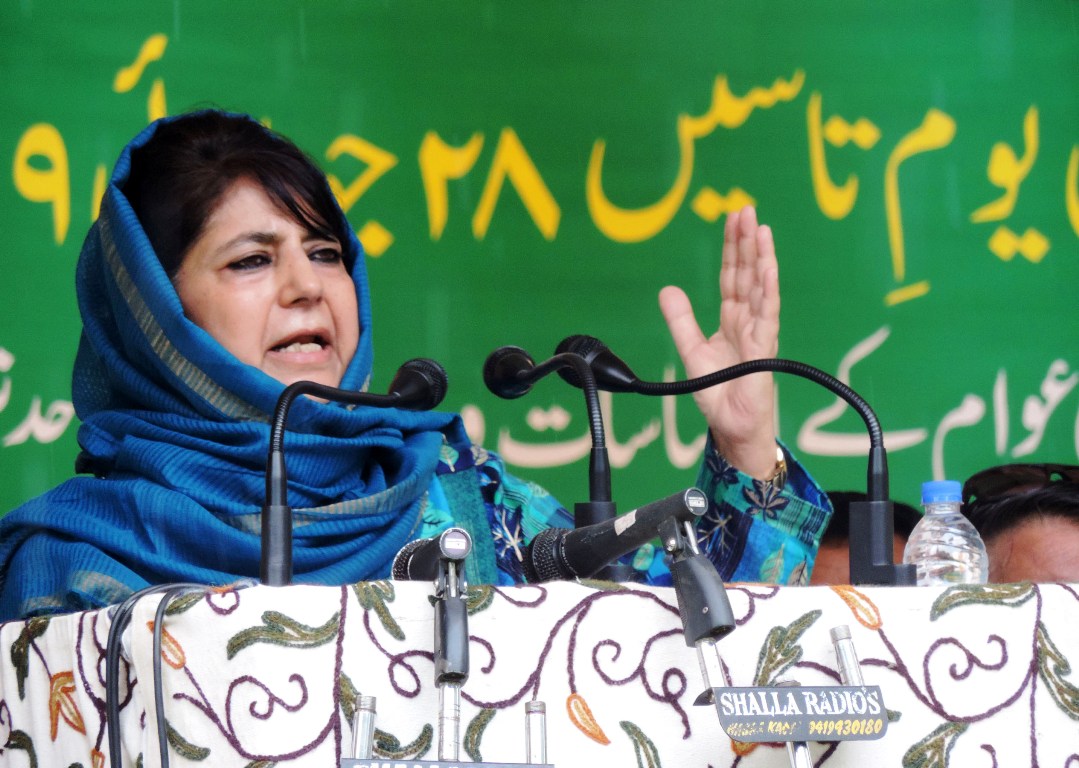by Zubair Lone
SRINAGAR: February 24, 2020, after more than six months, when children were out of homes to attend schools, the scenes of the reunion were jubilant all around. Sharing the details of their stay at home, mostly without the connectivity, the students of all the age groups were engrossed to hear and being heard. Out of formal classroom for around half the year, the students started to pick the threads of studies as well.
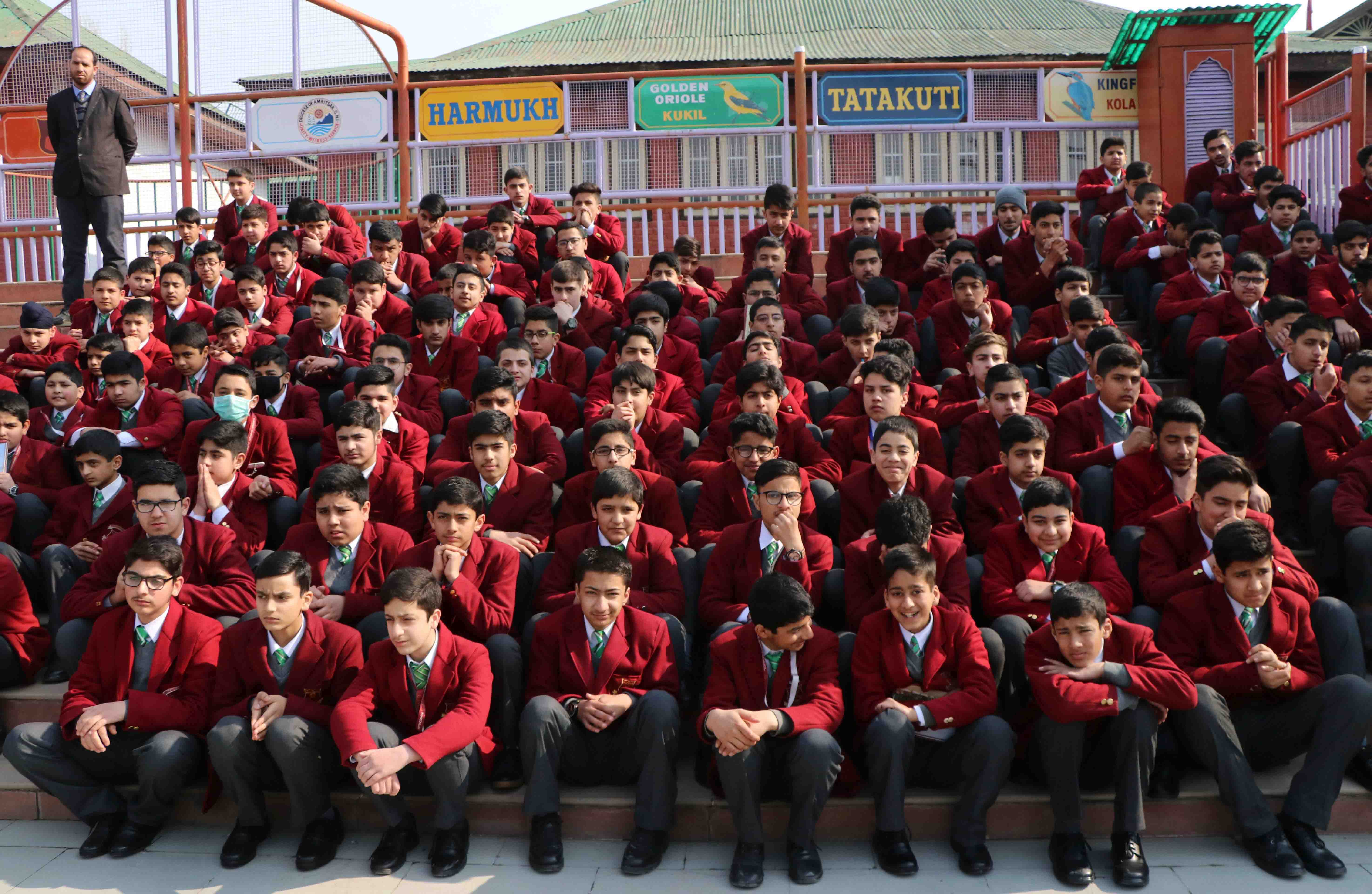
However, barely after two weeks in classes, the closure orders came down from the Jammu and Kashmir administration for all the educational institutions from primary to the university level. This time the Covid-19 scare became the reason. Spreading at a rapid rate across the geographies, the Covid-19 has set the alarming situation across the continents. Kashmir is no exception.
Distressed to know that he has to stay home again, Mohammad Faiq, a class eighth student is disappointed. He says he wants to study but his school has been closed and there are no tuition classes around. With no high-speed internet in place, Faiq has lost hope to even study online or download the material for preparation.
“Our schools started on February 24, and it was for two weeks that we attended our schools,” Faiq said. “Earlier we had a break of more than seven months since August 5, 2019. Tell me how is it justified that they shut our schools and then don’t provide us with the internet if we want to study online.” There are more than 11 lakh students sitting home, almost idle.
Now the threat looms large on the possibilities of students not returning to the classroom, any time soon. Sensing the trouble ahead, as soon as the administration came up with the order of closure of schools, many netizens started posting their views about the restoration of high-speed internet in Kashmir, which continues to remain suspended after the abrogation of the special status of erstwhile Jammu and Kashmir state. The 2G internet was restored on January 24, 2020. The hashtag #Restore4GinKashmir remained trending for at least two days on twitter.
As the demand to restore high-speed internet consumed both real and virtual paces, one concerned parent, Shazia Bakshi wrote on twitter, “Internet is perceived to be a bigger threat to #Kashmiris than #Coronavirus !! At a time when #SocialDistancing is a way to survive this apocalypse, the ONLY tool for communication, knowledge, connectivity, information, work et al is being denied to us! Shame! #Restore4GinKashmir.”
“If the WHO has called it pandemic and it is a medical emergency, the administration should ensure the citizens should get all services they require to stay in their homes,” one netizen, Abdul Majeed said. “Neither our kids are able to study from any online tutorial class nor are we able to watch any informative video on the Coronona virus. Nothing opens at even their maximum 148 kbps speed. They can’t deny us the right to read and know things,” he added.
Advocating for the restoration of the high-speed internet, Iltija Mufti, daughter of the former chief minister, Mehbooba Mufti, wrote on her mother’s twitter handle, “Coronavirus outbreak has been declared as a pandemic by WHO. Yet J&K admin continues its cruel crippling ban on 4G. It would have helped people to work from home & provided access to crucial information. This despite no incidents of violent protest since 2G was resumed.”
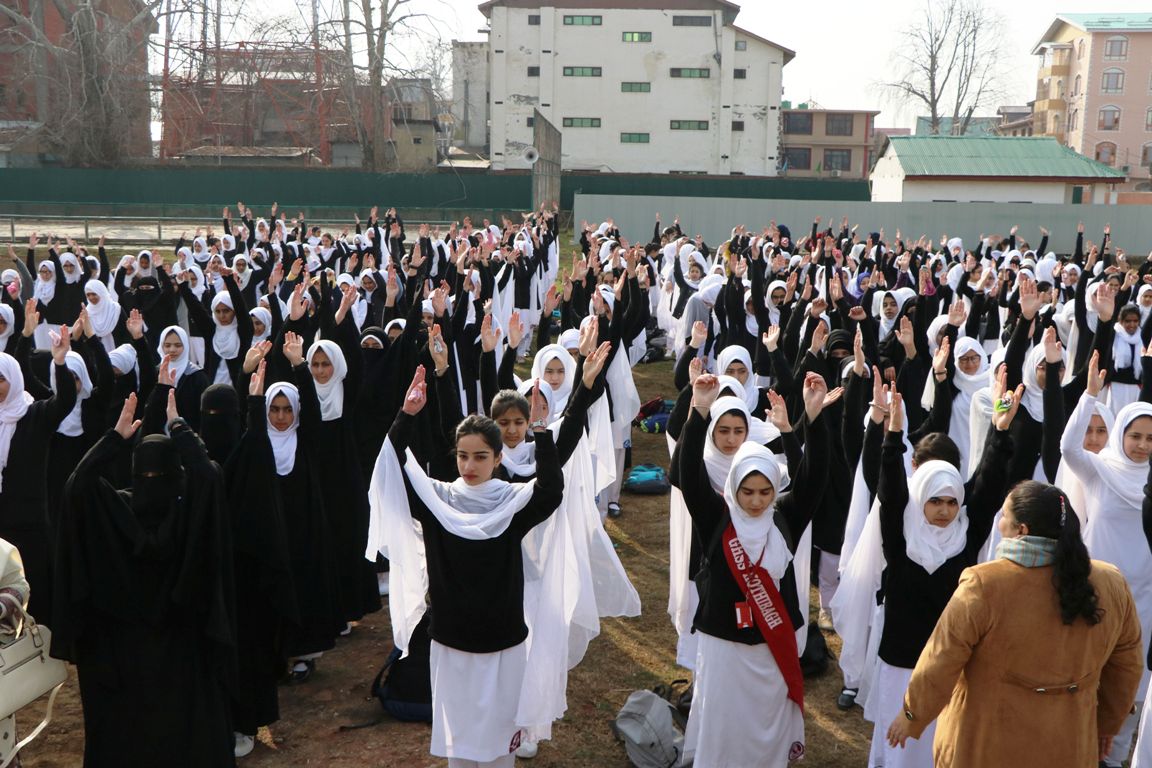
While taking a slew of measures to control the epidemic, the administration closed down all the public parks, restaurants, food courts and roadside vendors. The flea market, mostly known to sell imported used clothes was also shut down.
Free from restrictions, the political class right now operating in the valley urged union home minister to end the ban and restore the high-speed internet.
Founding president of recently formed Apni Party, Altaf Bukhari, demanded the restoration of 4G to mitigate the issues faced by student and business community. “restoration of 4G mobile internet services in J&K would enable people especially the students to remain engaged inside their homes, thereby effectively containing the global COVID-19 pandemic,” reports The New Indian Express.
Influential Shia leader and former minister Imran Reza Ansari also requested the establishment in Delhi to lift the curbs. “Requesting Hon’ble @PMOIndia @AmitShah for lifting of curbs on high speed internet access on mobile phones. It will certainly help people have a better communication facility in present crisis,” he wrote on twitter.
Srinagar Mayor, active in managing the Covid-19 crisis too had his request forwarded to union home minister. “This evening, i have written to @HMOIndia Sh. @AmitShah requesting that #4G internet Services are restored in J&K to help minimise the impact of the #COVID2019 preventive measures for students who are scheduled to take their board, entrance, aptitude examinations.
Additional spokesperson of National Conference, Sarah Hayat Shah reacting to the continued ban took on her twitter and wrote, “4G not restored even after world says ‘Covid-19 a disaster’. Talk about making Kashmir the best place in the world and we’re still denied 4g services, by the way we DO pay for the services each month. And then we’re told ‘it’s all being done for your own good.”
However, as the home department of the UT administration reviewed the ban on high-speed internet on Tuesday, the order dashed the hopes.
Principal Secretary to the government Shaleen Kabra in his order noted down that “in the interests of the sovereignty and integrity of India, the security of the state and for maintaining public order, the directions/restrictions contained in government order no 17(TSTS) of 2020 dated 04.03.2020 shall continue to remain operative till 26th March 2020 unless modified earlier.”
Unlike Kashmir, the other places across the world are conscious of the efficient use of the internet in times of advised social distancing. Understanding the possible fallout, most of the other countries in the world have facilitated the free internet connectivity for a minimum of two months to keep their citizens updated and keep the online mode cheaper to ensure social distancing.
Comcast, an American telecommunication conglomerate, has decided to give free internet service to the people for two months, with increasing high Internet speed. This step has been taken in view of Coronavirus and it is to ease the burden of people which they may face at home.
But in Kashmir, Dr Syed Asif Bukhari says, “I don’t know, why they don’t understand that the high-speed internet restoration is important, we are not able to spread the awareness about coronavirus. We are not even able to upload videos online.”
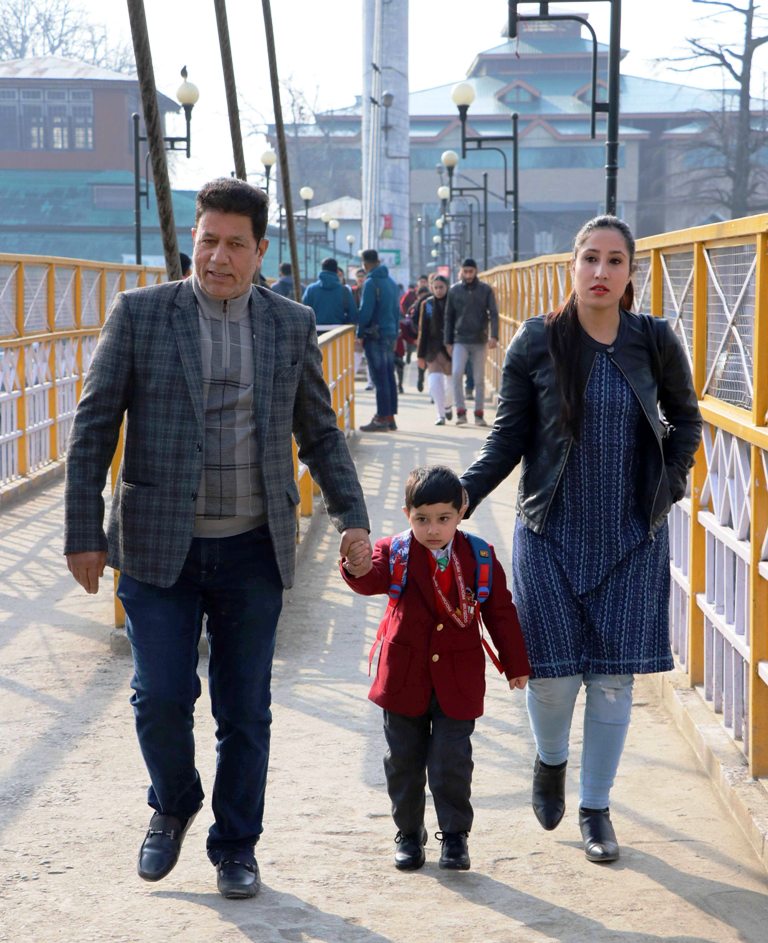
The private tuition centres who had their own methods to train students have started to upload the videos online, however, the option is still a distant dream. “We paid a huge amount last year and now even this year, but see we have not been able to avail anything. Not even the video classes,” said Javaid Ahmad, whose daughter studies in one of the institutes.
Besides becoming part of handicap even for the agencies fighting the pandemic, the curbs on the internet has its own costs.
The concept of “Work from home” being adopted elsewhere is not possible in Kashmir says Tahir Ahmad. As part of preventing the disease, most of the companies have gone to work from home; however, Kashmir is not in the list.
This speed curb has made things worse for people working outside the state. Desperate to be with their families back home and even having the option to work from home, the only hitch is that they don’t have access to the high speed.
As this report is being filed, the administration has closed down inter-state bus services and continues to take other measures, however, the ban continues till March 26.


